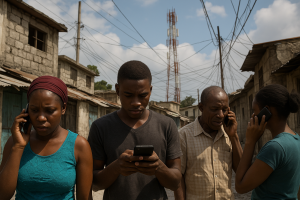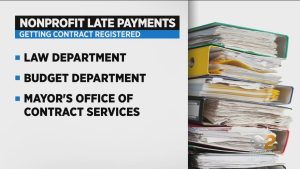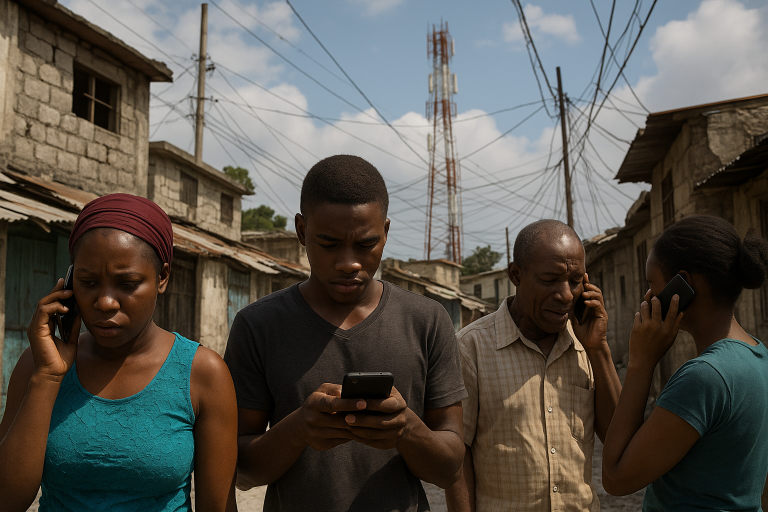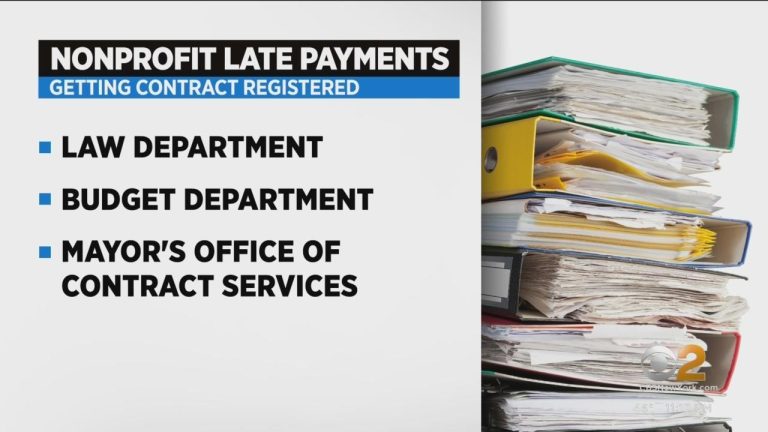Something unusual happened in Haiti this August. For the first time in the country’s modern history, businessmen now control both parts of the government. No elected officials. No politicians. Just wealthy business owners running the show.
Laurent Saint-Cyr, who used to run the American Chamber of Commerce in Haiti, now leads the country’s Transitional Presidential Council. The Prime Minister, Alix Didier Fils-Aimé, also comes from the business world. Together, they represent Haiti’s wealthy elite—a small group that has controlled most of the country’s money for generations.
But here’s where it gets interesting: These same businessmen are facing serious accusations. The United Nations says some of Haiti’s wealthy families help fund gangs, smuggle weapons, avoid taxes, and bribe officials. Several countries have placed sanctions on these elite figures. Some have even been arrested.
So what did they do? They hired expensive Washington DC lobbyists to change their image and protect their interests. In just six months, Haitian business groups spent over $475,000 on lobbying—and that’s only what we know about.
A Country in Crisis
To understand why this matters, you need to know what’s happening in Haiti right now.
Gangs control 90% of Port-au-Prince, the capital city. Nearly 5,000 people were killed between October 2024 and June 2025. About 1.3 million Haitians—out of 11 million total—have been forced to flee their homes. Half the population doesn’t have enough food to eat.
Haiti hasn’t held a presidential election since 2016. The current transition government is deeply unpopular. When Saint-Cyr had his swearing-in ceremony, a gang leader threatened to attack the building where it was taking place.
This is one of the worst humanitarian disasters in the world, ranking alongside Gaza and South Sudan for food insecurity. Hospitals have shut down. Roads are blocked. And yet, the people now running the government are the same wealthy businessmen who many blame for creating these problems in the first place.
Who Are Haiti’s Elite?
Haiti is the poorest country in Latin America and one of the most unequal places on Earth. About 95% of the population is Black and poor. The other 5%—mostly mixed-race families—control most of the wealth and power.
This small group of families has run Haiti’s economy for generations. They import goods, own banks, control factories, and have close ties with American diplomats and politicians. Many of them have homes in Florida and legal permanent residence in the United States.
For years, they worked behind the scenes—funding politicians, influencing policies, and protecting their business interests. But now they’re not working through others anymore. They ARE the government.
Fritz Alphonse Jean, an economist who briefly led the council before Saint-Cyr, put it bluntly: “When the private sector controls both branches of the executive, it raises legitimate concerns.”
The International Crackdown
Starting in 2022, the international community began taking a harder look at Haiti’s wealthy families. UN investigations found evidence that some oligarchs:
- Give money and weapons to armed gangs
- Avoid paying customs duties and taxes
- Traffic drugs
- Bribe government officials
- Capture control of the state for their own benefit
Canada took the strongest action, placing sanctions on several powerful businessmen, including:
- Gilbert Bigio (a billionaire)
- Reynold Deeb (one of Haiti’s largest importers)
- Marc-Antoine Acra (a major rice importer)
- Several others
The United States went further in July 2025. They arrested Reginald Boulos, a wealthy Haitian living in Florida, claiming he supported gangs and helped destabilize Haiti. Then Secretary of State Marco Rubio made an unprecedented announcement: any legal permanent resident caught supporting Haitian gangs would face deportation.
This was a big deal. For decades, Haiti’s elite could live comfortably in America while doing business back home. Now that safety was threatened.
The Lobbying Response
Faced with sanctions and bad publicity, Haiti’s business community fought back—not with guns, but with lawyers and lobbyists.
Here’s what they spent:
The Haitian Government (February 2025)
- Hired: Carlos Trujillo, a former Trump administration official
- Cost: $35,000 per month for 12 months
- Total: $420,000
The Deeb Family (March 2025)
- Hired: Brownstein Hyatt Farber Schreck (one of DC’s biggest lobbying firms)
- Cost: $110,000 through June
- Note: Reynold Deeb is sanctioned by Canada
Institut Macaya (April 2025)
- A group of 18 wealthy businessmen
- Hired: TSG Advocates DC (a major Florida/DC lobbying firm)
- Cost: About $30,000 in two months
- Also paid an American consultant $6,800 to write a “Haiti Action Plan”
Patino & Associates (April 2025)
- A Florida law firm representing unknown Haitian interests
- Cost: At least $300,000 in under three months
That’s nearly half a million dollars spent in just six months—and probably more we don’t know about.
What Did They Get for Their Money?
The lobbying seems to be working.
In July 2025, the US Department of Agriculture organized a trade mission to the Dominican Republic to help American companies export more goods. Among the “US companies” invited were businesses owned by the Deeb family and the Acra family—both families have members under Canadian sanctions.
This is significant because these families import huge amounts of American rice into Haiti. Haiti is one of the world’s biggest markets for US rice, worth millions of dollars.
The lobbyists also helped their clients get meetings with US officials, shape the conversation about Haiti’s crisis, and push back against sanctions. When Prime Minister Fils-Aimé visited Washington this summer, a delegation from Institut Macaya was there too, working the same government offices.
The “Morally Repugnant Elite”
Haiti’s wealthy families earned a harsh nickname in the 1990s: the “Morally Repugnant Elite.”
The name came from their support of a brutal military dictatorship that overthrew Haiti’s first democratically elected president in 1991. The US government placed sanctions on dozens of families. But even with those sanctions, most of them got richer.
A New York Times article from 1994 explained how they survived: “Their influence has been reinforced by personal ties forged with generations of American diplomats and by their use of well-connected lobbyists in Washington.”
Sound familiar? Thirty years later, the same pattern continues—just with bigger budgets and more sophisticated lobbyists.
Institut Macaya was created specifically to change this image. The group formed in summer 2022, right when the US started talking about new sanctions. Their website was registered just days after Gilbert Bigio, father of the group’s leader, was sanctioned by Canada.
Jean-Paul Faubert, who runs Institut Macaya, told reporters: “It’s clear the private sector has a bad reputation both locally and internationally. It’s not through words that we will change that, it is through action.”
But critics weren’t impressed. When Macaya hired an American consultant to write their action plan, activist Monique Clesca posted on social media: “18 people from the private sector are unable to come up with an action plan for Haiti? This says a lot about the mediocrity of this sector. That they hired a foreigner to do it also shows the disdain they have for Haitian professionals.”
History Repeating Itself
This isn’t the first time Haiti’s elite have organized to influence Washington and shape their country’s future.
After Haiti’s devastating 2010 earthquake, a similar group called the Private Sector Economic Forum formed. It was led by Reginald Boulos—yes, the same man arrested by US authorities in 2025.
That group produced reports about the private sector “breaking with the past” and played a major role in Haiti’s reconstruction. Boulos even sat on a special commission with former US President Bill Clinton.
But behind the scenes, they were also meddling in politics. The group worked with Hillary Clinton’s State Department to interfere in Haiti’s 2010 elections. The result? Michel Martelly became president—and he was later sanctioned by both Canada and the US for corruption. He still lives comfortably in Florida.
The reconstruction that this private sector group helped guide is now seen as a failure. Many experts say it created the conditions for today’s crisis.
The Real People Paying the Price
While wealthy businessmen spend hundreds of thousands on lobbyists and battle over political control, ordinary Haitians are suffering.
- Nearly 5,000 killed in nine months
- 1.3 million people forced from their homes
- Half the country hungry
- Gangs ruling the streets
- No elections since 2016
- Hospitals and schools closed
Haiti received less international humanitarian aid than almost any other crisis in 2025. The UN multinational security force that was supposed to help has far fewer troops and money than planned. Both gangs and police are accused of killing civilians.
At his inauguration, Laurent Saint-Cyr said: “We must restore state authority. The challenges we face are certainly linked to insecurity, but they also are the result of our lack of courage, a lack of vision and our irresponsibility.”
He called for more international troops and more money. But he didn’t explain why Haitians should trust wealthy businessmen—many with questionable ties—to solve problems that these same elite families helped create.
What Happens Next?
Elections are supposed to happen in November 2025, with a presidential vote scheduled for February 2026. But can you hold free elections when gangs control most of the capital? When millions of people have fled their homes? When the government itself is deeply unpopular?
Many experts doubt it will happen.
Meanwhile, the pattern continues. Despite sanctions, despite UN reports, despite international pressure, Haiti’s wealthy elite haven’t just survived—they’ve taken direct control of the government. They’re spending freely to protect their interests in Washington. And the majority of Haitians have little say in any of it.
Canadian sanctions remain in place. The deportation case against Boulos continues. UN investigators keep documenting alleged crimes. But history suggests that Haiti’s elite are very good at weathering storms.
They survived the military dictatorship of the 1990s. They survived the earthquake of 2010. They’ve survived every crisis that has devastated ordinary Haitians. Why? Because they have money, connections, and expensive lawyers—and because American politicians have consistently chosen to work with them rather than challenge them.
The Bottom Line
Haiti’s story is about power—who has it, how they keep it, and why it’s so hard to change.
A small group of wealthy families controls a country of 11 million people. When international pressure threatened their position, they didn’t reform or step back. They hired Washington lobbyists and took direct control of the government instead.
They’re spending hundreds of thousands to shape how America sees them and to protect their business interests. Meanwhile, Haiti faces one of the worst humanitarian crises on Earth.
The question isn’t whether Haiti’s elite will survive this crisis—history shows they probably will. The question is whether the Haitian people will ever get a real voice in their own country’s future.
For now, businessmen run the government, lobbyists work the halls of power in Washington, and 11 million people wait to see if anything will really change—or if this is just another chapter in a story that has been repeating for decades.











Add a comment